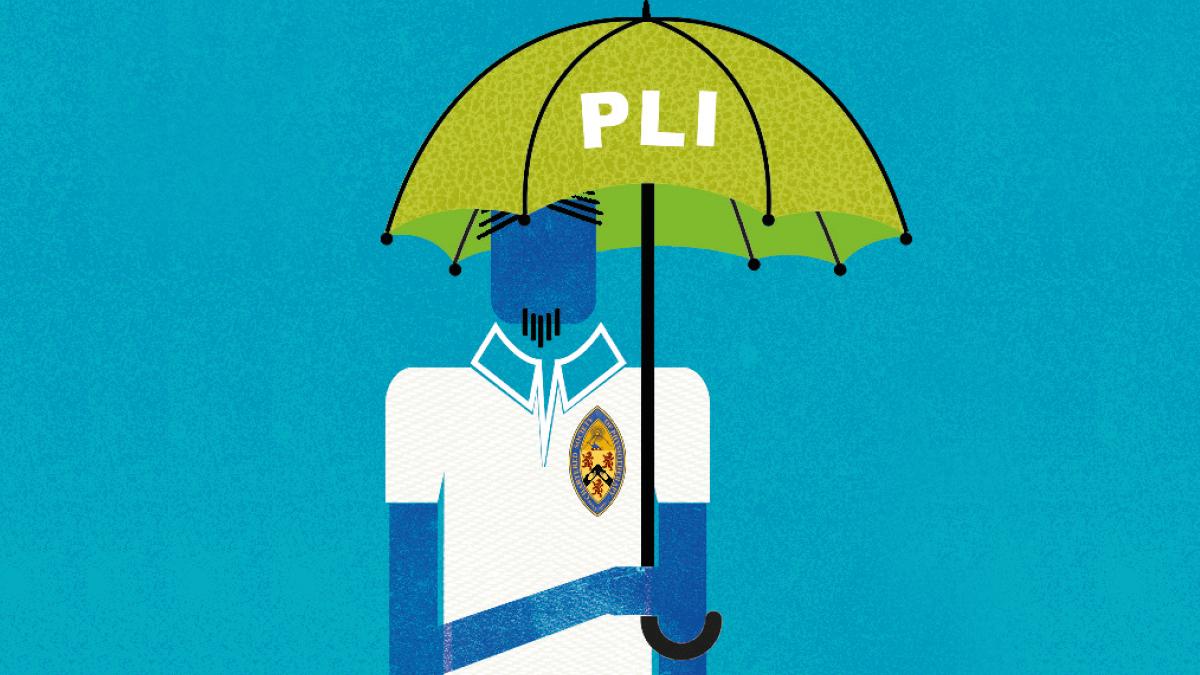We unpick four commonly misunderstood areas and some of the PLI implications. CSP professional advisers Sara Conroy and Pip report...

The CSP PLI scheme is one of the benefits that is highly valued by our members, but it is also one that is poorly understood.
Here we share some key information about the scheme and why it is important for you to understand what the policy means to you.
What it is
The CSP PLI scheme provides two separate insurance policies for you:
- Medical malpractice insurance: this covers claims for personal injury arising from your work eg a failure to assess and treat properly or a patient being harmed with your treatment.
- Public liability insurance: this covers non-personal injury claims that are not associated with your treatments eg slips, trips and falls coming in and out of your clinic.
The PLI scheme covers all activities within the scope of the profession. There is no list of ‘included’ activities to avoid the policy being unintentionally restrictive. Some physio activities are excluded from cover, for example the treatment of animals, some male professional footballers and spinal injection. There is no cover for non-physiotherapy activities.
1. Advanced practice
Advanced practice is a level of practice that registered healthcare professionals from a range of backgrounds and areas can achieve. Some tasks that advanced practitioners undertake allow an individual physiotherapist to perform tasks and activities within their personal scope of practice but outside the scope of practice of their primary registration as a physiotherapist.
This is reflected in the advanced practice frameworks that govern these roles and assure patient safety and is recognised by the HCPC.
Where members are employed in advanced practice roles, their employer provides the indemnity for all of the role.
Where members need their own insurance they must ensure they have additional insurance for the non-physiotherapy activities, as such tasks are not covered by the CSP PLI scheme - Advanced practice and scope.
2. Business covers
The CSP PLI scheme is primarily designed to cover an individual’s work and not the liabilities of employers or business entities. Members structure their individual independent practices in different ways and as, such PLI needs may differ. There is an ‘indemnity to principal’ clause within the CSP scheme. This offers restricted cover to CSP members operating some types of business entity, but this is subject to strict rules and eligibility criteria, including a ‘turnover cap’ on business revenue.
This caused some confusion to members and many felt it was set too low. We have listened to member feedback and from 1 July the turnover cap will increase to £140,000 for all eligible businesses subject to policy terms and conditions.
Members who need guidance on the insurance needs for their business should contact James Hallam for advice. Find out more about running a business here.
3. Students
All student members of the CSP benefit from the CSP PLI scheme with the additional requirement that their work must be supervised by a registered health professional. Students must ensure that they have suitable insurance for their pre-registration practice placements as well as any other individual work experience activity.
Where a placement is part of the formal learning required for HCPC registration, the indemnity arrangements are usually part of the learning agreement between the student and the HEI. We now advise all students to check they have appropriate PLI in place, especially now that more placements are taking place outside of the NHS, or are arranged as additional voluntary work experience.
From 1 July, the CSP will no longer offer a stand alone sports-massage insurance policy for students wishing to practise sports massage. Students must ensure they hold their own insurance for this work that is not covered by the CSP scheme. Find out more form our Insurance for students and practice placements pages.
4. Telemedicine and other virtual technology
During the pandemic, we saw a huge increase in enquiries about matters relating to digital technology and telemedicine.
Telemedicine and other virtual technology consultations, which are provided from the UK by members who are ordinarily resident and based in the UK to people who are also physically based in the UK at the time they receive the consultation, is covered by the PLI scheme subject to policy terms and conditions. A member ordinarily resident and based in the UK may also continue the care of their patient whilst that patient is temporarily outside the UK, for example on holiday, subject to policy terms and conditions.
Whilst global technology may be enabled worldwide, the PLI scheme is not and this applies to telemedicine too. There is no cover for any activity in the USA, Canada or Australia. Members must also check if any local registration requirements are needed to deliver telemedicine into any given overseas country.
Where members are based outside the UK, and their patients may also be outside the UK, then members should check their individual circumstances with James Hallam. Website, digital, print and virtual technologies
Common negligence claims
The most common clinical negligence claims against the CSP PLI scheme may surprise some members. We have regular claims for burns from the use of electrophysical agents which ought not to be happening. We also have a long standing history of claims for pneumothorax caused by negligently placed acupuncture needles, which are not defendable and a consequence of unacceptable practice.
Other claims tend to occur when a physiotherapist has failed to assess properly and use appropriate clinical judgment to make a diagnosis and consider if a patient needs an onward referral. Claims can also arise when a physiotherapist uses inappropriate treatment or doesn’t apply treatment in an appropriate manner.
Visit Our learning from litigation resources can help you avoid and navigate these pitfalls.
Find Out More
Number of subscribers: 1
